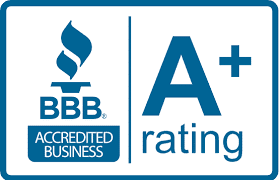THE "COMPARATIVE FAULT" DEFENSE
After an injury victim files a lawsuit, the defendant will often try to raise a "Comparative Fault" defense. This has to do with whether the plaintiff (the injury victim) was also at fault in connection with the underlying accident. It is called “comparative fault" because if the case goes to trial, the jury will weigh the evidence at trial and compare the plaintiff's negligence, if any, with the defendant's negligence.
This "comparative fault" defense must be raised and established by the defendant. In other words, the person being sued is required to prove that, more likely than not, the plaintiff was comparatively negligent. This means the defendant has to show that the plaintiff did not exercise reasonable care or that the plaintiff did something wrong or unsafe which was a cause of the plaintiff's own injury.
How the "Comparative Fault" Defense Works
The first thing to remember is that a judge or jury determines the victim's comparative negligence only after it determines whether the defendant was negligent. If you go to trial in a slip and fall case, and the jury finds that the defendant was not negligent, the case is over. There is no need to determine whether the plaintiff was negligent or not.
If, however, the jury finds that the defendant was negligent, then it considers whether the plaintiff was also negligent. If the jury finds that the plaintiff was also negligent, then it has to compare the fault of the plaintiff to the fault of the defendant.
For example, the jury might find that the plaintiff's injury was 70% the defendant's fault and 30% the plaintiff's fault. So, the plaintiff's comparative negligence will reduce the amount of the plaintiff's award by the percentage of fault assigned to the plaintiff. So if a jury finds a plaintiff to be 30% at fault, the Judge will reduce the jury's award by 30%.
Insurance companies that get involved to defend injury claims before a lawsuit is filed will usually try to raise "comparative fault" arguments to leverage or scare injury victims to settle their case for much less than they deserve before they get a lawyer or file a lawsuit.
If someone is trying to blame you for an injury you suffered because of the negligence of another, reach out to St. Louis based Allen Injury Law, LLC for help. 314-300-8380

















